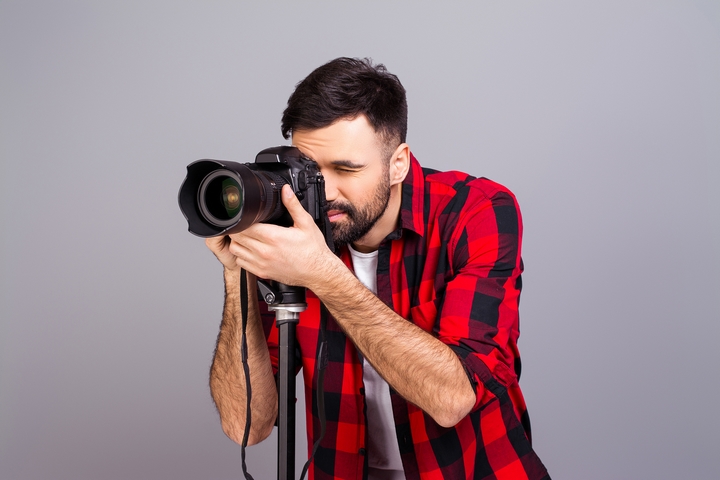We live in a digital age of pictures, and social media is our album. Most of us have a good quality camera inside our smartphones, so we are ready to take a shot whenever we want. It is automated, so we don’t have to worry too much; just point and click.
Having the ability to take a photo doesn’t necessarily mean it will turn into a good picture, though. If you are interested in improving your craft or simply want to have better photos, it’s worth taking the time to educate yourself.
Here are six easy tips on how to become a better photographer quickly:
1. Study Photography

Every great musician started with lessons, practicing chords and scales, and learning history and method. The same rules apply to photography. You need to become a student of your medium, and with photography, there are many ways to do it.
Study great photographers to see what techniques they used in their work. Learn about the art of composition and how to balance different elements in a photo. There is no shortage of information online. You can even take classes, webinars or online courses to learn photography methods and get inspired to practice your craft.
2. Rent Cameras

How do you know what type of camera suits you? You can’t go out and buy multiple cameras until you find the right one because you’ll run out of money fast. The better choice is to rent different cameras.
Find a camera rental with a wide variety of equipment and pick out one to rent. Go out and use it for a day or two to get an idea of how it works and if you like it. Then rinse and repeat. Rent as many as it takes to find the perfect one because this is how you can sample high-quality cameras. It will also help you decide when to purchase your one.
3. Buy Affordable Photography Equipment

It’s not worth going into debt over equipment so buy the best that you can afford and learn to use it well. The skillset you acquire over time will determine the quality of your photographs, and you can slowly upgrade lenses, flash and your camera as you go.
Learn everything you can about the equipment you have until you master all the manual settings. This will improve your skills and get the shots you want despite the lighting or environment.
4. Practice as a Photographer

Practice makes perfect, and you can hone your craft in several ways. Start by shooting in all weather and outdoor lighting conditions. Don’t wait for the golden hour to come; learn to shoot in low light, daytime and nighttime. This way, you gain experience with all lighting conditions to prepare you for any situation.
Get as much studio experience as you can too. This is where you learn how to control light and various backgrounds. There is lots of flexibility in a studio, and you can even learn from seasoned professionals by volunteering or shadowing another photographer.
5. Look for Photography Inspiration

Photography is all about documenting moments in time and telling a story through an image. You may see the world differently than others and find shots everywhere you look. Seek out other creatives with your viewpoint because they can offer inspiration and help you see more to photograph.
Go to galleries to check out other types of art, from painting to sculpture. Pay attention to shading, lighting, and colour because this is a way to change the atmosphere of an image. It is also a way of keeping you motivated and evolving in your craft.
6. Master Photo Editing Software

Not all your shots need editing, but it is important to know how to use software like Photoshop and Lightroom.
Shoot raw images, so you have uncompressed images to work from. The benefits of this are:
- More Flexibility Raw files are not processed by your camera, so they contain more colours, giving you better editing options.
- Better Detail You get more image information with a raw image, which means a larger pixel count and superior dynamic range.
- Increased Control A compressed image gives you fewer options when manipulating photos. A raw image allows altering colour saturation, tonal range, brightness, contrast, and other options.The ability to edit your photos can take them to the next level so learn the latest programs, front to back.
Photography can be a subjective visual art, but you too can perfect your craft and be proud of what you capture in front of the lens. Use these six steps to become a better photographer and share your photos with the world, one pixel at a time.




